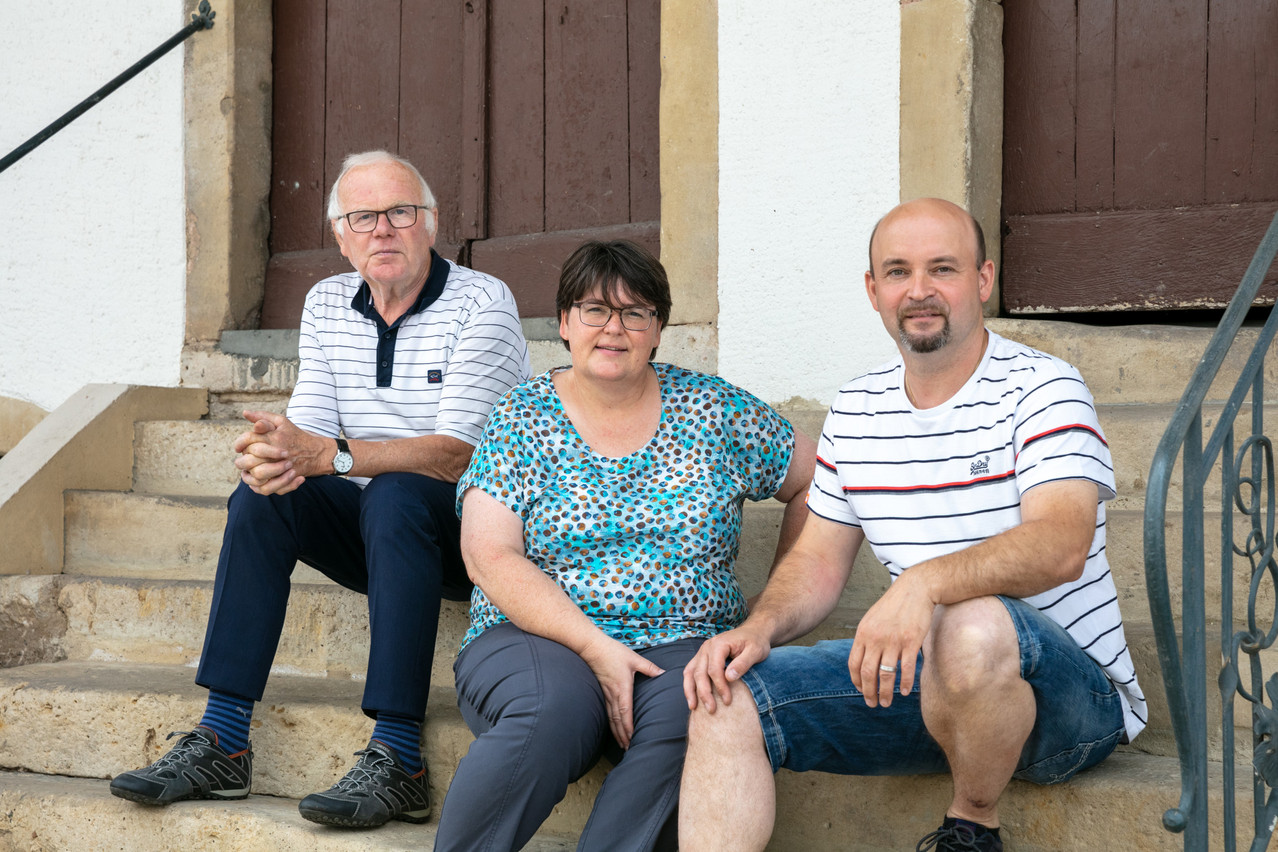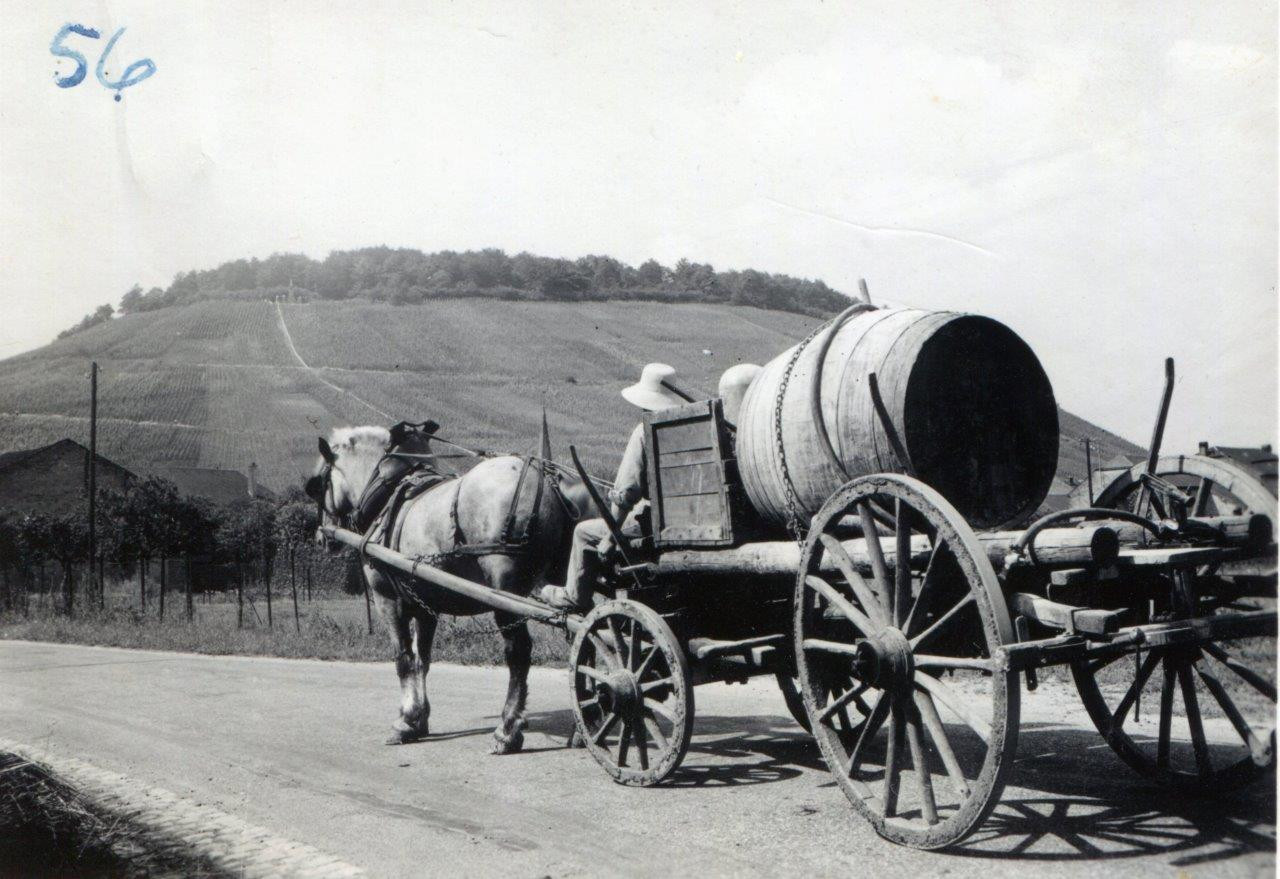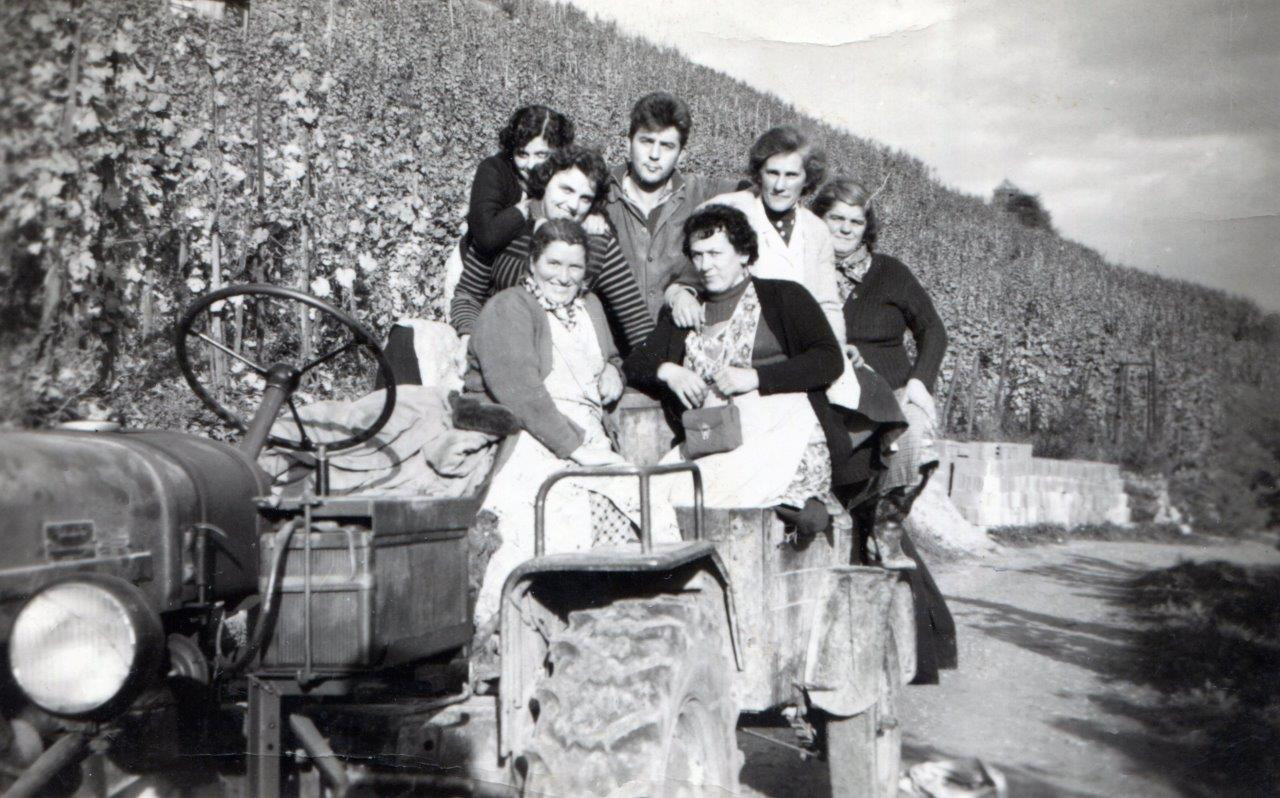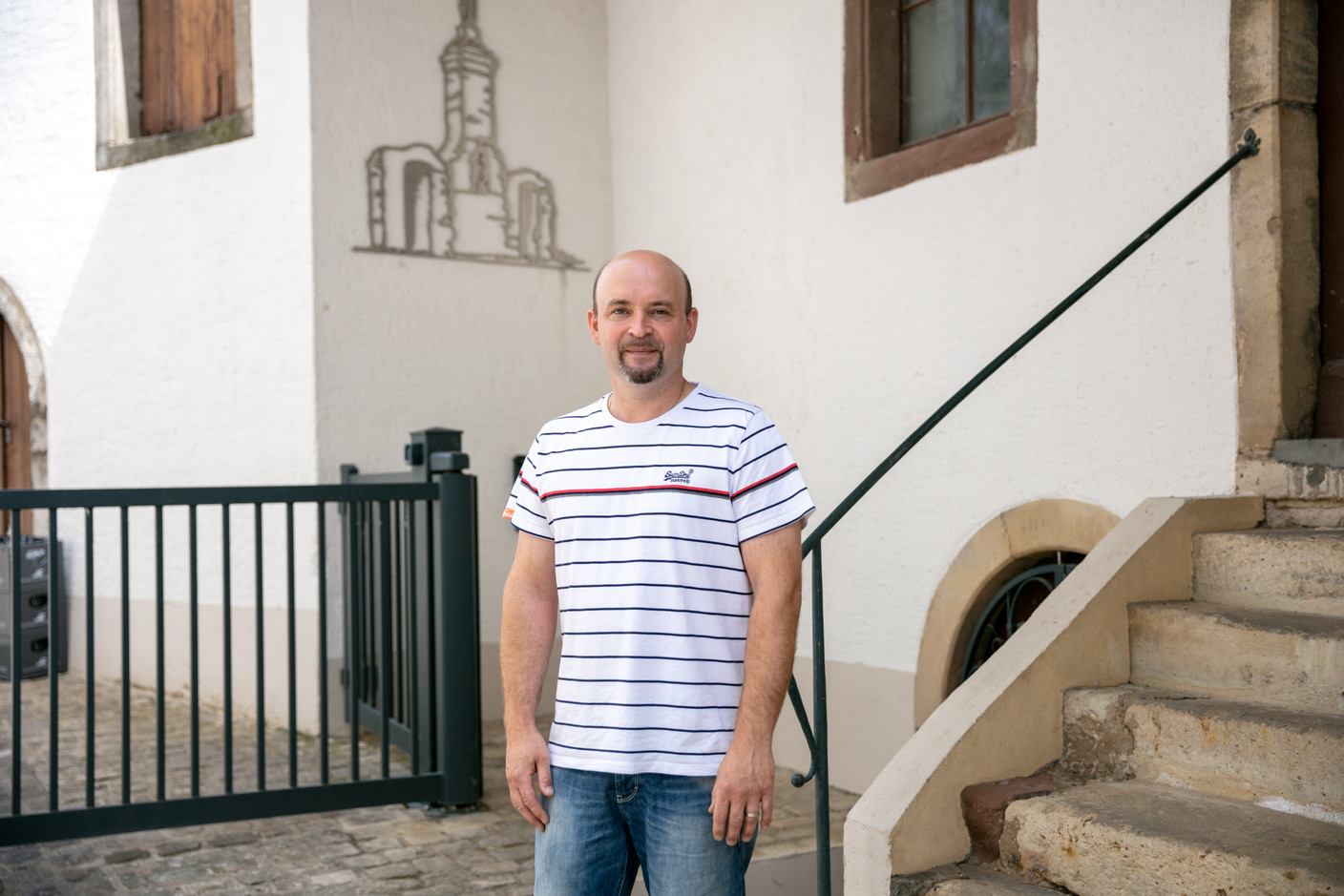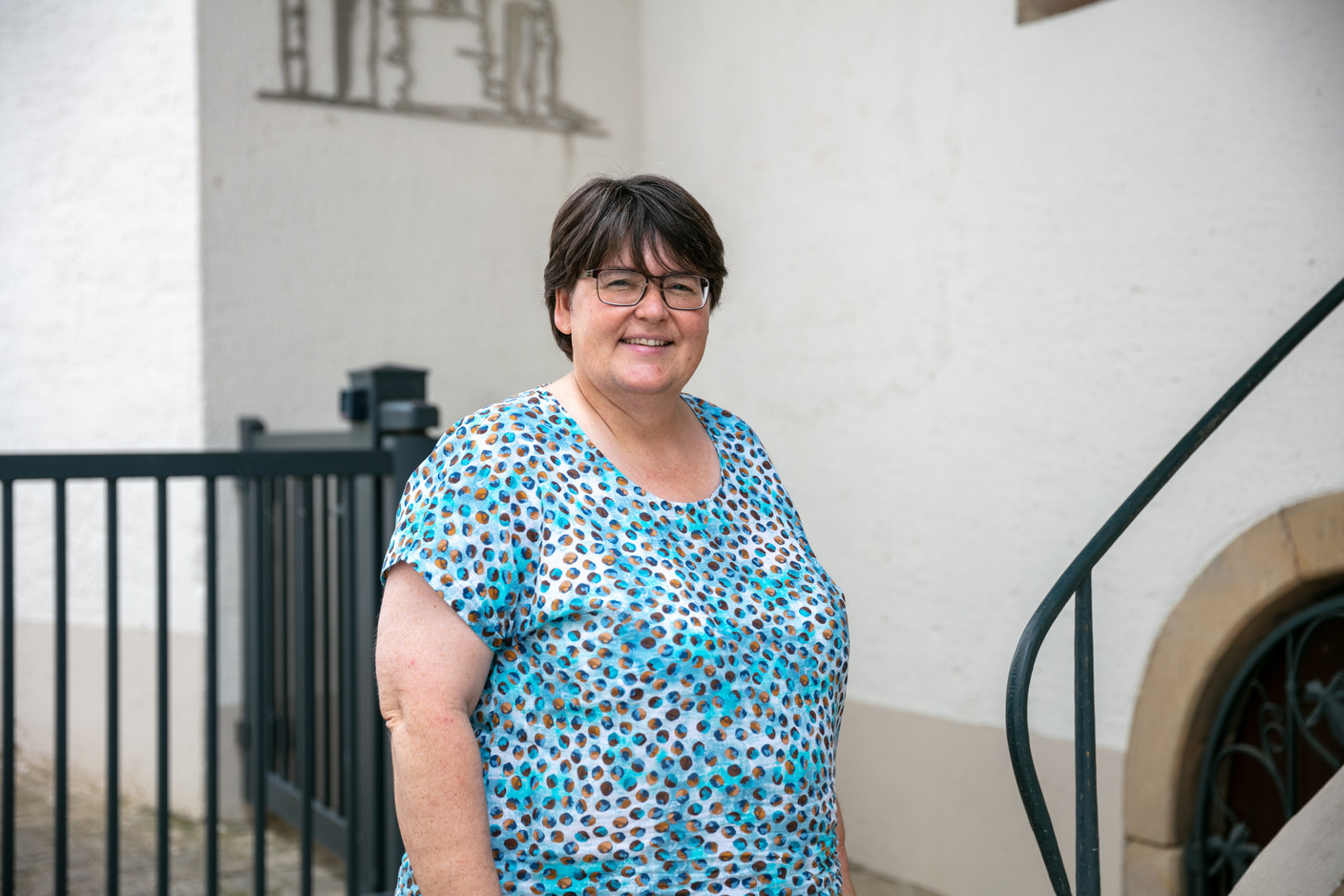Three hundred and seven years have passed since the first cellar of the Schumacher-Knepper estate was built in Schengen. But it is from a new tasting room, just a stone’s throw from the vines and wine barrels, that Martine Herrmann-Schumacher and her brother Frank Schumacher tell the story of the family business which they have been running since 2003.
“One of our ancestors, called Körig, settled here in 1714. His granddaughter married a Schumacher, Valentin, and then the generations went on from father to son. I’m the first one to break the tradition,” says the 50-year-old sister, who is part of the tenth generation together with her brother. When bottled sales started, “our grandfather decided to stay with one brand, so as not to have to change from successor to successor. That would be better with regard to the customers. He added his mother’s name, Knepper, because there are other Schumachers in the Moselle.”
Fortunately, it was done this way; otherwise it would have been difficult to keep track of them. When Martine Schumacher married a Herrmann, she took the surname of her husband, while her brother Frank married a German teacher, Martine, giving her the surname Schumacher.
One marriage led to another. In 2020, the Schumacher-Knepper estate took over the Jean Linden-Heinisch estate from Martine’s father. That added six hectares of vines to the 11 that the family business already owned. The sum paid for the transaction has not been disclosed.
A wind of modernity
This expansion is not the only thing the tenth generation has done. “We have taken a step towards the customer,” say Martine and Frank, who have set up an online sales site and a tasting room. “Before, you had to ring the bell, there wasn’t even a sign.” In addition, they “have increased the production of red wine.”
However, when they were younger, the brother and sister did not want to take over. “Our father wanted to leave the choice to us,” explains Martine. Back then, he hadn’t had such a choice. “He wanted to become a teacher. But in those days, the eldest child had to take over the estate.” Eventually he ended up working there with his brother. “And in the end, he was happy. But it’s not fun to not have your freedom,” says Frank.
He wanted to become a teacher. But in those days, the eldest child had to take over the estate.
A need for independence
Frank had just graduated from high school and his sister had been working for two years when their father asked them whether they should sell the estate or pass it on to the siblings. “At that moment, you realise that this is your heritage--it’s not financial--part of your family is potentially being lost,” explains Martine. She had just been promoted to director of a parastatal association. “There was still someone above me, you had to ask to buy a printer. I lacked the independence that you find in a family business. [By contrast] if a machine broke [in the family business], my father would replace it.”
The fear of losing this estate, where he remembers riding on his father’s lap in a tractor and tasting the first juice from the press at the age of six, pushed Frank to make the same decision. “I wanted to be a doctor, I don't know,” he says nonchalantly. The offer of training for the winegrower’s profession motivated him. “I saw that there was great diversity, one day you work outside, another in the cellar, with customers, on social networks…”
As for their older sister, she had already chosen her path in the banking sector.
I lacked the independence that you find in a family business.
Once the decision was made, Martine worked with her father on the estate for five years. Her brother joined her after his oenology studies in Germany in 2002. Together with their father, they bought out their uncle’s shares and officially took over a year later. Frank is in charge of production and Martine takes care of accounting and sales. They each own 50% of the shares and employ five people. The turnover, which has not been communicated, “depends on the year.”
Distinguishing between shareholding and management
The next generation seems to be deciding more quickly. “My 16-year-old son would like to study winegrowing in Spain," says Martine. Her eldest, aged 18, is aiming for a job as an engineer. “We too have decided not to influence them.” Frank’s two boys, aged four and seven, don’t yet have clear ambitions. “The youngest likes to ride in the tractor, that’s all,” he says, smiling.
While they admit they would like the business to stay in the family, they are not opposed to a different model. “Before, the estates were mixed--we also did farming. Over the years, we have specialised in wine. In our case, the last cows left in 1966. Our parents lived there, while my brother and I refused to," explains Martine. She has also left the door open to “separating management and ownership”, if necessary.
This article in Paperjam. It has been translated and edited for Delano.
